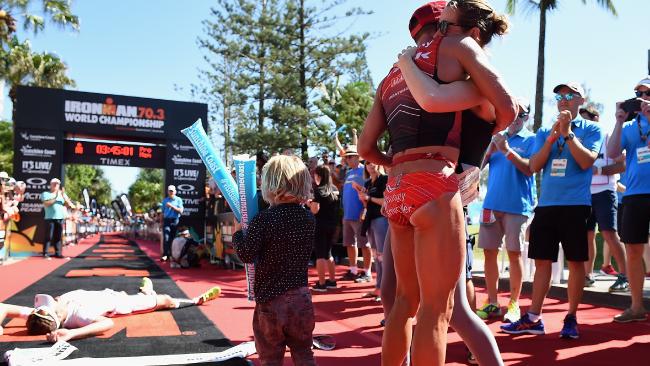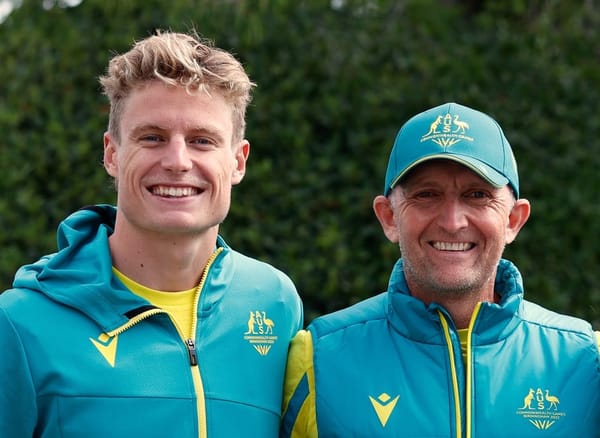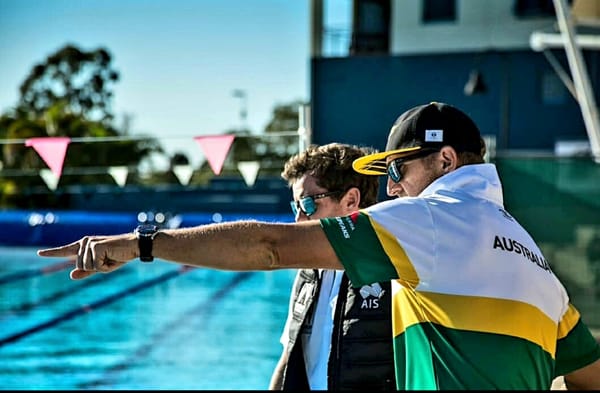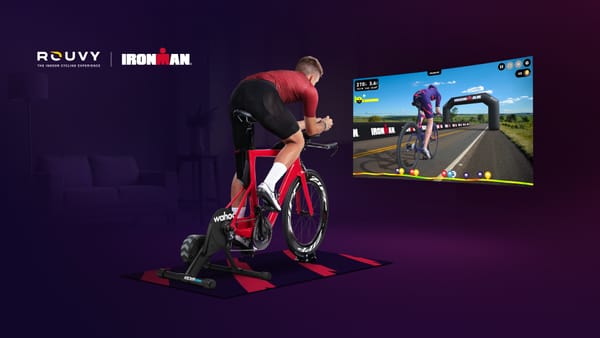Tim Reed: The Most Interesting World 70.3 Champion Opens Up
Tim Reed is the Ironman 70.3 World Champion, and along the way he has learned a huge amount about how to approach life as an athlete. Trizone caught up with Tim to chat about training, crippling nerves, Kona and his identity within the sport. “It’s definitely a career highlight, but it’s still a job

Tim Reed is the Ironman 70.3 World Champion, and along the way he has learned a huge amount about how to approach life as an athlete. Trizone caught up with Tim to chat about training, crippling nerves, Kona and his identity within the sport.
“It’s definitely a career highlight, but it’s still a job. It’s just a part of my life,” Reed told Trizone, explaining his feelings about becoming the World 70.3 Champion. “There are other parts to my life that are more important, like being a dad and having my friendships.”
At just 31 and the world’s best 70.3 triathlete, Tim Reed has a perspective few people gain in a life time. “It’s almost a relief that I’d achieved something in the sport that I could look back on and be proud of,” said Reed modestly. “I’m always aware that it doesn’t take long to have a bad result down the line.” Rather than take the win and run (so to speak), becoming world champion only fuelled Reed’s determination. “From a triathlon perspective it made me hungry again to prove something to myself, and other people,” he added.
Being an athlete doesn’t make you a good guy
With so many athletes demanding a place in the spotlight, Reed is keen to dispel the notion that athletes are flawless. “People assume because you’ve done well in sport that you don’t have flaws, but I can tell you they’re there.”
“In the old days, when people were good at sport, they were labelled as a great guy, but it doesn’t go with the territory. There’s a big aspect to all of us athletes that has to be about the ego. At times it doesn’t sit well with me how elite athletes are viewed. You have to have a fair bit of mongrel and competitive edge, and be a bit selfish.”
Rather than shy away from his ego, though, Tim Reed has learned to harness its power. “It’s probably why I’m good at winning races,” he said. “There’s an ego to me and I want to beat everyone else. Luckily though, as I get older I can switch that on and off.”
Being selfish to help others
Despite being a world champion, Reed is able to see triathlon objectively. “If you ever want to do anything of genuine impact and be able to help, sometimes those years of selfishness and building up reputation, influence or money, or whatever it is can help other,” he said. “These things can pay off later on when you can give back. I’m hoping I can help others down the track.”
Balancing triathlon and family is tough
Tim Reed has certainly built a powerful reputation and personal brand around his racing, but he admits that the balance between triathlon and family is difficulty at times. “It does take a toll on the whole family. It’s not just the time away that you’re training. It’s the time you’re at home and you’re exhausted and moody,” he said. “Sometimes when my kids are just being kids, I find myself getting frustrated, where if you weren’t tired from training you’d be fine.”

Reed is refreshingly candid when talking about the exhaustion professional triathletes have to battle. “When I have a break, I realise I’m such a nicer person when I’m not in training,” he said. “My wife would love to have more kids, but I don’t think now is quite right. I feel like I’m a much better person to be around when I’m not tired all the time.” It’s this objectivity that allows Reed to analyse his performance, and focus on the importance of taking care of himself during racing season.
Burnout and sleeplessness plagued Worlds 2015
“Last year I was completely burnt out from how tired I was. Everyone had sacrificed so much for me leading up to Austria (Worlds 2015) ; both myself and my family. Then when I got there, I was so anxious to get on the podium I destroyed myself,” Reed said.
“I didn’t sleep for three whole days. It was an all-out effort for 14th place. My power was lower than in IRONMAN Australia despite being half the distance. It wasn’t lack of training that produced the disappointing result either. My training was spot on,” said Reed, “but my anxiety got the better of me. I know what to do in training, I just needed the other stuff; better recovery and being more relaxed in races is something I’ve been working on.”
Changing his approach leads to victory
After an incredibly stressful World Championships, Reed had decided he’d never again approach a race burnt out and stressed. “I changed my approach after 2015,” he said. “Now I race with a sense of gratitude; realising each race is an opportunity and the only real failure is if I give up halfway through.”
This complete change to his mindset filters into every aspect of his training. “In 2016 last year at Worlds, I was more relaxed about the little things. I wasn’t as obsessive about diet, or cutting out coffee and all those things. I told myself to do what I could, and not be too over the top with it.”
Mindfulness helps create a world champion
A mindful approach doesn’t mean a lack of training. Reed worked incredibly hard in the lead up to the worlds, but he added mindfulness to his routine. “On a daily basis I’d lie down for 20 minutes. I’d just relax and listen to music and do some mindfulness training.”
Reed isn’t a fair-weather meditator, he acknowledges it takes hard work to get results. “If you do this stuff just once or twice in the days leading up to the race, it’s probably not going to do that much. If you’re going to get the benefits you need to do at least four to five weeks with a daily practice,” Reed explained. ‘It gives you that little extra kick of healthy hormones, helping recovery, clearing your mind and reducing stress. I’ve found it pretty helpful.”
Reed sets his sights on Kona and the big guns
“Guys like Frodeno have a certain image. People are in awe of them, like they can’t be beaten. I’m not like that. I think about where he’s better than me, and how I could improve,” said Reed.
Reed is confident he can be a top contender at full Ironman distance. “There’s no doubt these guys are complete athletes. It can be intimidating just trying to find how you can make up some time on these guys, but there is a way!”
Tim Reed is only 31, and he’s aware many men don’t make the Kona podium until they’re 34 or 35. “Some of these guys are a bit older too,” he noted. “Time ticks along. Injuries come along. Dominance doesn’t tend to last forever. Someone has to be there to take his place when he steps down.”
It’s this fierce mindset that helps Reed triumph over the competition, and he’s never one to give up. “I get frustrated hearing guys say they can’t match the top guys. Instead, the should consider where the winners are better than them, and see where there’s room for improvement.”
It’s not only the other athletes in the field that can change a race, but also the use of the crowd and media which he harnessed at the 70.3 World Championships. “There were certain parts on that back section coming into town where there was a strong crosswind, but there’s so much media it really gives you an advantage,” he added.
This knowledge may come in handy for Reed in 2017, as he’s motivated by just one thing; Kona 2017. “I’ve targeted World 70.3 many years in a row, but Hawaii is the one place where I haven’t done well, so that’s what motivates me.”
Fiercely driven, Reed also loves to prove people wrong. “I get pretty motivated by the doubters,” he said. “Like when potential sponsors say they don’t think I’ve got what it toes to do well in Hawaii. That really spurs me on.”
Tim Reed is gearing up for Challenge Melbourne, then IRONMAN Australia and a 70.3 before heading off overseas. Trizone wishes him all the best in his racing this year.




